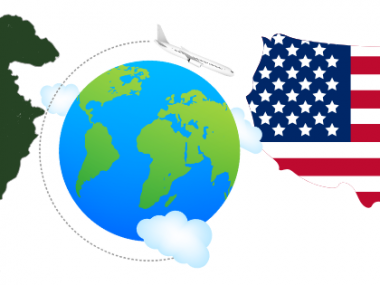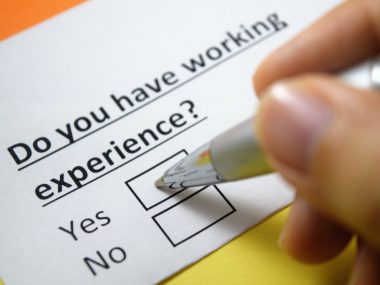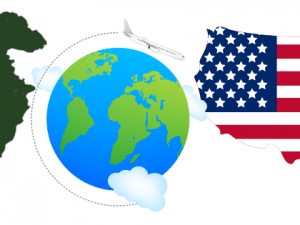Water in its unwanted forms is not something new to me. I have seen too much of it in my life, more closely during my childhood, when once a year I enjoyed flood, usually a five to seven-day event, heralded by couple of thundering rains, followed soon by a stream of soiled water that would rise roughly three feet in two days and gradually lower in another two, leaving a very shallow pond, a rich source of mosquitos, snakes, scorpions—and stink. An enjoyment for kids like me, for the parents flood was devastating. I still remember adults of my family, sitting up all night, every night, for days in row, planning how to restore their damaged lives. Floods are only sporadic signs of climate change, just like hurricanes—like Katherina or Sandy or Maria or Irma—and they presage another form which is invisible and irreversible, approaching us inch by inch—the rising sea level.
Table of Contents
Rise in the sea level
For some it remains a myth; for others the sea level is rising, palpably. In the Paris agreement, over two years ago, teams warned us that sea level could rise up to three feet two inches. In 2015, Nasa echoed the warning with a more concerning estimate of “at least three feet.” All these estimates were before we knew about “marine ice-sheet instability,” a recent addition to our growing list of scientifically proven perils, which means that massive ice sheets in Greenland and Antarctic have begun to collapse, multiplying our estimates of rise in the sea level. In 2017, a report by the National Oceanic and Atmospheric Association upped the estimated rise of sea level, predicting it, by the end of 21st century, to be eight feet. Another study the same year raised the level further still, warning that it can be eleven feet.
Notice that two-thirds of the world cities are perched on the coastal line, hosting a population of more than 150 million in the precarious position of just 3 feet above sea level. If the prophecy of eleven feet rise in sea level comes true, the coastal cities, like Mumbai and New York, will fully submerge in water. It means the same cities whose infrastructure and life style are chewing fossil fuels like a mad creature, creating the most carbon emission, are preparing for their own funeral. Before the final submerging of these cities, climate experts believe, the high tides of sea storms will continue to be higher in coming episodes. And this we have already seen. With all this we are looking at incalculable loss of infrastructure and un-imaginable refugee crisis.
Jeff Goodell report
Jeff Goodell, a veteran climate reporter, who had already written a couple of books on climate change, when himself witnessed the horrors of Hurricane Sandy, decided to write one more—The Water will come: Rising Seas, Sinking Cities and The Remaking of The Civilized World. For this purpose, pulling his pants, he scurried along some coastal cities. His observations and interviews of scientists, of real estate agents, of optimistic city planners and indifferent citizens, paint a very wet picture in which all you see is water, coming in high tides.
Despite warnings by dedicated scientists, he feels, response is inconsistent, varying from local jugglery to global denial. In mega cities where most wealth of the world is parked, the city planners have come up with projects that seem to guarantee safety, but only for wealthy infrastructure and for a short period of time: In New York, a sea wall around lower Manhattan, named Big U, will only protect shining sky scrapers, and for how long who knows; in Venice, the MOSE (Modulo Sperimentale Elettromeccanico) barriers, an expensive $6 billion project, is designed to handle only a sea level rise of two feet; the Thames barrier in London, a system that protects the city from tidal surges in the Thames river, will soon need to be replaced. Other projects are more ambitious: raising a whole city, as was done in 1860, to prevent flooding in Chicago, but such projects are rendered due to current infrastructure impossible.
Scientists are cock-sure
Scientists are cock-sure that water is coming. However, Real estate market, a business that has touched in coastal cities an ideal success, a community that doesn’t believe in sad, soggy theories of rising sea level, contend that a bird in the hand is worth two in the bush. Rest of the people, Goodell noticed, like to reside in their favorite territory—denial. Ah! this book is full of sad information.
As my parents raised our house, three feet two times, I never realized what they had been through, until recently, when I closely started following the victims of Hurricanes in the Unites States. Hurricane Sandy, which hit New Jersey, damaged 200,000 homes; Hurricane Harvey, which pounded Houston, Texas, three times in six days, damaged 203,000 homes; Hurricane Maria pushed 3.4 million Puerto Ricans out of their homes into desperation. In short, millions lost their basic needs—health care, medicines, food, water, electricity, internet—within few hours. The disruption of life in these hurricanes always refresh the worries of my elders that I ignored in my pleasures.
Humanitarian crisis
We are sitting on a huge humanitarian crisis. With coastal cities engulfed by sea, population will leave their crumbling houses and move inland, where they will receive from their fellow humans a formidable resistance. For philosophers rank adversity among the most difficult trials of humanity, and we find ourselves failing in this trial, again and again. Immigration of few millions have already revealed our humanity: no politician can present his policies without strong steps against immigration; no person can talk about it without some detriment to his reputation. With coming refugee waves expect more divisions and civil wars, conventional hatred in new forms. A disaster.
What we can do?
Can we make a difference? Sure. But we need to start now. Writing cannot keep our heads above water. Actions will do. Among dark forebodings of Goldberg, one can see few rays of hope. Zero tolerance to the use of fossil fuels is the only prevention. We should protect our globe from every puff of smoke and every unit of heat. Understand this: Scientists set forth theories based on experiments; we construe reality from on our everyday experience. Therefore, communication fails, confusion begets more confusion. In such situation journalists help. If Goodell appears to be the shepherd yelling Water! Water! Water! we better believe him and change our lifestyle.











